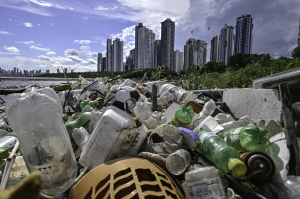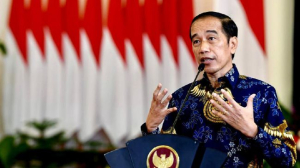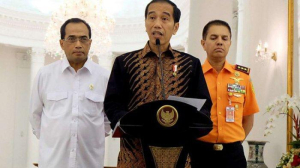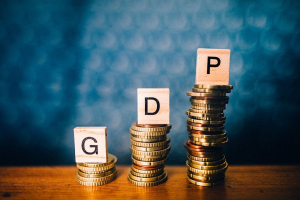Grabbing “Plastic Treaty” momentum for pollution reduction, green economy development
Indonesia should use the Global Plastic Treaty, which is expected to be issued at the end of the 5th Intergovernmental Negotiating Committee (INC) negotiations, which is held in Busan, South Korea from November 25 until December 1, 2024, to reduce pollution and pursue green economy develoment, experts say.
Professor of Ecology at the University of Versailles Saint Quentin en Yvelines, Mateo Cordier, says in his study titled “Reducing plastic production: Economic loss or environmental gain? ” that plastic pollution in the oceans could cause global economic losses of US$13.7 to 281.8 trillion from from 2016 to 2040.
“For Indonesia, this could mean a loss of up to one percent of GDP. This figure emphasizes how important it is to take action against plastic pollution to avoid further losses in the future,” he said.
However, the findings of a recent report by India's Center for Science and Environment show that Indonesia still lacks a firm position in several key areas.
“To maximize the benefits of this agreement, Indonesia needs to strengthen its negotiating position by supporting the reduction of plastic production and the development of environmentally friendly alternatives. While already supporting technology transfer, Indonesia has a great opportunity to show stronger leadership by supporting concrete measures that align with national environmental and economic interests,” the report says.
Rayhan Dudayev, Campaign Strategist of Greenpeace Southeast Asia, said the government − as the mandate holder of the Indonesian people − has a responsibility to prioritize public safety from threats to health and the environment by ensuring that Indonesia's position is not dominated by the business interests of certain industries.
He cited that pushing for a strong plastics agreement outcome would benefit the Indonesian economy.
“We understand the importance of maintaining the national economy as the pillar of the country's sustainability. We encourage Indonesia to support sustainable and safe business innovations that are aligned with the International Agreement on Plastics, including reuse businesses where one of the main supporting elements is the reduction of plastic production,” Rayhan said as quoted in a statement on Friday, November 29, 2024.
“In addition to reducing carbon emission figures and reducing upstream plastic pollution, this chosen policy will also attract innovative funding that is environmentally friendly,” he added.
Meanwhile, Tiza Mafira, Executive Director of Dietplastik Indonesia, said that this agreement needs to provide a firm solution to the problem that single-use plastics are the plastics that cause the most waste and are not recycled, based on a Dietplastik Indonesia study showing that reuse solutions to replace sachets have the opportunity to contribute up to Rp1.5 trillion (US$ 94.6 million) in net economic value by 2030.
“Of course, in order to be achieved, the reuse system needs to have adequate standards and infrastructure, with the support of government policies. We hope that the Treaty includes the obligation of each country to have a reuse target, and emphasizes the priority of policies and funding on waste prevention, upstream solutions, not directly to downstream management,” Tiza said.
This change in policy priorities is anticipated to also create more jobs. Data from the C40, a collection of cities with initiatives to prevent climate crisis, revealed that the waste management sector of 97 member cities could create 2.9 million jobs with the implementation of zero-waste strategies.
Policies that support the reuse process would also create around 200 times more jobs than old methods such as incineration or landfilling. Indonesia alone currently produces an estimated 7.8 million tons of plastic waste per year, with 58 percent uncollected and 9 percent directly discharged into rivers.
As the fifth most plastic waste entering the ocean from rivers, supporting a strong Global Plastic Treaty is a strategic move that will benefit Indonesia's economy.
Already have an account? Sign In
-
Start reading
Freemium
-
Monthly Subscription
30% OFF$26.03
$37.19/MonthCancel anytime
This offer is open to all new subscribers!
Subscribe now -
Yearly Subscription
33% OFF$228.13
$340.5/YearCancel anytime
This offer is open to all new subscribers!
Subscribe now






